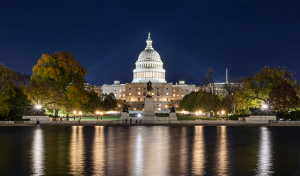Welcome to Our Research Archive
Search and filter by content type, issue area, author, and keyword
- ✕ Clear Filter
- AI (1)
- Article (4)
- Articles (977)
- book (1)
- Climate (239)
- climate change (1)
- data dashboard (14)
- electricity (3)
- energy (243)
- Events (25)
- op-ed (2)
- Podcast (3)
- Post (2)
- Puerto Rico (1)
- Report (2)
- Reports (16)
- science (80)
- science funding (10)
- science trust (10)
- technology (541)
- testimony (1)
- Working paper (1)
November 17, 2025
The Last Gasp of the Climate Thought Police
Following my lecture last week at Cornell, one Cornell professor, a well-known climate activist, called for the firing of the director of the Cornell Atkinson Institute for Sustainability — an accomplished scientist himself — simply for hosting my visit. Gavin Schimdt, a NASA scientist and another well-known climate activist, took to social media to complain that I had cited…

November 17, 2025
Congress Can Help Update our Infrastructure by Passing the SPEED Act
The National Environmental Policy Act of 1969 is the basic law governing federal reviews of construction projects’ environmental impacts. Unfortunately, it has evolved into an environmentally destructive monstrosity. Why? Because the left-wing environmentalists have used it in endless litigation to oppose even projects that clearly would yield important environmental improvements over existing infrastructure. New infrastructure…

November 17, 2025
Restoring America’s Cyber Shield: Why CISA 2015 Must Be Reenacted Now
The United States faces a cybersecurity crisis: not from foreign actors, but from internal political deadlock that has dismantled one of its most effective defense tools. The Cybersecurity Information Sharing Act of 2015 (CISA 2015) became a bargaining chip in government shutdown negotiations. Not reauthorizing this piece of legislation leaves businesses and government agencies increasingly…

November 14, 2025
Science Evolved. The Narrative Didn’t.
I spent this week in Ithaca, New York visiting Cornell University. It was a fantastic visit. I met with faculty, researchers, students, staff, administrators, and taught a few classes. I was warmly welcomed and had a chance to discuss, debate, listen, learn, agree, disagree, and break bread with many colleagues. In short, my visit revealed…

November 14, 2025
Australia Wishes for Cloud Data Storage for Christmas
On November 6, Reuters reported that Google was planning to build a large artificial intelligence data center on Australia’s Indian Ocean territory—Christmas Island—after signing a deal with the Australian Department of Defense earlier this year. Reportedly, Reuters had reviewed documents and interviewed officials related to this plan. The specifics of the data center—such as its…

November 13, 2025
The App Store Freedom Act Would Hurt Those It Claims to Protect
It has become popular in both parties to believe that the government should be in the business of being in business. From Democrats proposing city-run grocery stores to Republicans buying stakes in steel mills and computer chip makers, the trend is bipartisan—and sets a dangerous precedent. The latest example? The deceptively named App Store Freedom…
November 12, 2025
When Less Warming Means More Fear
Something curious is going on in the world of climate advocacy. As THB readers know, projected future carbon-dioxide emissions from fossil-fuel combustion have been consistently revised downward in recent years, resulting in less projected warming. Yet rather than acknowledge this encouraging development, climate campaigners have shifted the goalposts by lowering the threshold of what they…

November 12, 2025
Comment Submitted to the Department of the Interior, Bureau of Land Management
Summary: BLM proposes “to rescind” the 2024 final “Conservation and Landscape Health Rule” adopted on May 9, 2024. Despite the promise in the 2024 final rule that it “defines the term ‘ecosystem resilience,’” no such definition actually is presented in the 2024 final rule. Instead, there are numerous references to such concepts as ecosystem health,…

November 12, 2025
Fourth Amendment Doctrine vs. Textualism
The Federalist Society produced a webinar recently that I found fascinating, not only because I was a panelist. There was a marked divergence of opinion on Fourth Amendment law. I believe I know where the law is headed. We should and will use the text of the Fourth Amendment to interpret it. Stanford Law Professor…

November 10, 2025
Analyzing the Charter-Cox Merger
Earlier this year, Charter Communications, Inc. and Cox Communications announced a $34.5 billion proposed merger. If completed, the combined company would become both the largest cable television provider and the largest broadband provider in the country. At first glance, one might be concerned about a proposal to merge the second and third-largest cable providers into…